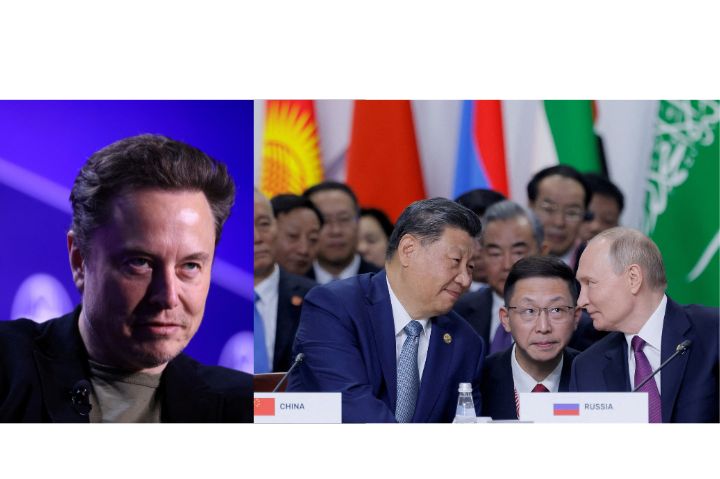In a bombshell revelation, SpaceX CEO Elon Musk is alleged to have held secret discussions with Vladimir Putin, who reportedly requested a favor for Chinese President Xi Jinping: disabling Starlink internet coverage over Taiwan. This reported alliance between the tech mogul and two of the world’s most powerful authoritarian leaders has sparked concern among Western officials about Musk’s growing influence—and his potential sway over US national security interests.
According to a report by the Wall Street Journal, Musk’s closed-door talks with Putin covered a range of sensitive topics, from business dealings to global politics. Putin allegedly leaned on Musk to keep Starlink offline over Taiwan, in line with Beijing’s geopolitical ambitions. Currently, Taiwan’s government has restricted access to Starlink, citing strict controls on foreign telecommunications, but these new details suggest that Musk’s cooperation with Putin may go deeper than previously known.
Starlink, the satellite internet network powered by Musk’s SpaceX, has a fleet of more than 7,000 satellites providing near-global coverage, crucial in areas with restricted internet access. The service has already been a game-changer on the Ukrainian front, providing vital communications for Kyiv’s forces against Russian troops. However, in a controversial move, Musk reportedly disabled Starlink during key Ukrainian operations last year, a decision that frustrated Ukrainian officials who were relying on the technology for critical battlefield maneuvers against Russia. This new revelation suggests Musk’s strategic withholding of Starlink may not be limited to Ukraine.
Kremlin spokesperson Dmitry Peskov confirmed a single call between Putin and Musk but downplayed its significance, saying it was “limited to space topics.” However, insiders report that the two have kept in regular contact, discussing Musk’s expanding global influence. Meanwhile, Putin has openly praised Musk’s independence, declaring, “He will do as he sees fit.” For many, the statement underscores the Kremlin’s comfort with Musk’s control over a technology as influential as Starlink.
Musk’s recent moves have drawn the attention of US national security experts, given his extensive contracts with the US government and the Defense Department. His communications ventures not only influence conflict zones but could also reshape international power dynamics, as control over global communications increasingly defines modern warfare and diplomacy.
With reports of regular contact with Putin and Xi’s influence looming, questions over Musk’s motivations and loyalties are mounting. As one of the few individuals with influence spanning defense, technology, and geopolitics, Musk’s decisions could reshape the global landscape—whether in the best interest of democracy or not. Will Musk’s actions serve as a strategic asset or a risky liability for the West in a time of global tension?












